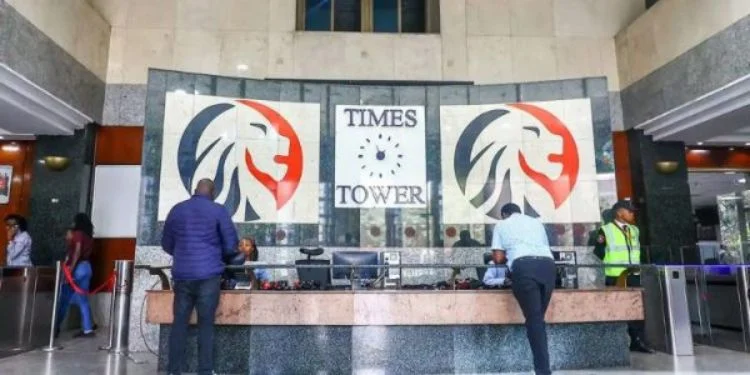In a robust display of market demand, government-issued infrastructure bonds (IFBs) have been trading at a premium in the secondary market at the Nairobi Securities Exchange (NSE). The surge in interest is primarily attributed to retail buyers seeking the allure of high, interest-free rates offered by these bonds.
As of the latest trading session, only three active bonds surpassed their par value at the NSE. The 17-year IFB from March, the 7-year bond floated in June, and the 6.5-year paper issued earlier this month exhibited trading prices above their face value.
According to NSE data, the November IFB reached a trading price of up to Sh103.97 for every Sh100, while the June IFB touched Sh102.30 on Friday. The March paper traded at Sh102.15 per every Sh100, with transactions valued at less than Sh50 million each.
Contrastingly, other IFBs listed on the NSE are currently trading in the range of Sh71 to Sh97 for every Sh100.
The attractiveness of these bonds is further emphasized by their coupon rates, with the November IFB offering 17.93 percent, the June paper at 15.83 percent, and the March issuance at 14.4 percent. These rates significantly surpass earlier issuances, which averaged between 10.85 percent and 13.94 percent, thereby justifying the premium sought by bondholders in the secondary market.
Seizing the opportunity presented by the heightened demand, the government has reopened the sale of the November IFB through a tap sale. The ongoing sale, which concludes on December 6, aims to raise Sh25 billion. The initial sale, targeting Sh50 billion, closed on November 8, raising Sh67.06 billion against a Sh88.9 billion target.
While other fixed-rate bonds are trading at a discount, infrastructure bonds have seen increased activity in the secondary market. In the bond market, prices and yields exhibit an inverse relationship, where an increase in one signals a decline in the other. This inverse relationship is evident as investors, prompted by higher rates in the primary market, seek to sell existing holdings at lower prices to reinvest in new issuances and lock in higher returns.
Investors holding bonds until maturity are shielded from fluctuations in yields and prices, earning the face value of the paper upon maturity. However, for those looking to sell before maturity, collective losses arising from price discounts have amounted to billions of shillings.
Data from the Capital Markets Authority reveals that between April and August, bondholders incurred actual losses of Sh9.6 billion when selling their paper at the NSE. Despite realizing Sh254.87 billion in sales, this fell short of the Sh264.47 billion par value of their bonds.
By: Delino Gayweh
Serrari Financial Analyst
4th December, 2023
Article, Financial and News Disclaimer
The Value of a Financial Advisor
While this article offers valuable insights, it is essential to recognize that personal finance can be highly complex and unique to each individual. A financial advisor provides professional expertise and personalized guidance to help you make well-informed decisions tailored to your specific circumstances and goals.
Beyond offering knowledge, a financial advisor serves as a trusted partner to help you stay disciplined, avoid common pitfalls, and remain focused on your long-term objectives. Their perspective and experience can complement your own efforts, enhancing your financial well-being and ensuring a more confident approach to managing your finances.
Disclaimer: This article is for informational purposes only and does not constitute financial advice. Readers are encouraged to consult a licensed financial advisor to obtain guidance specific to their financial situation.
Article and News Disclaimer
The information provided on www.serrarigroup.com is for general informational purposes only. While we strive to keep the information up to date and accurate, we make no representations or warranties of any kind, express or implied, about the completeness, accuracy, reliability, suitability, or availability with respect to the website or the information, products, services, or related graphics contained on the website for any purpose. Any reliance you place on such information is therefore strictly at your own risk.
www.serrarigroup.com is not responsible for any errors or omissions, or for the results obtained from the use of this information. All information on the website is provided on an as-is basis, with no guarantee of completeness, accuracy, timeliness, or of the results obtained from the use of this information, and without warranty of any kind, express or implied, including but not limited to warranties of performance, merchantability, and fitness for a particular purpose.
In no event will www.serrarigroup.com be liable to you or anyone else for any decision made or action taken in reliance on the information provided on the website or for any consequential, special, or similar damages, even if advised of the possibility of such damages.
The articles, news, and information presented on www.serrarigroup.com reflect the opinions of the respective authors and contributors and do not necessarily represent the views of the website or its management. Any views or opinions expressed are solely those of the individual authors and do not represent the website's views or opinions as a whole.
The content on www.serrarigroup.com may include links to external websites, which are provided for convenience and informational purposes only. We have no control over the nature, content, and availability of those sites. The inclusion of any links does not necessarily imply a recommendation or endorsement of the views expressed within them.
Every effort is made to keep the website up and running smoothly. However, www.serrarigroup.com takes no responsibility for, and will not be liable for, the website being temporarily unavailable due to technical issues beyond our control.
Please note that laws, regulations, and information can change rapidly, and we advise you to conduct further research and seek professional advice when necessary.
By using www.serrarigroup.com, you agree to this disclaimer and its terms. If you do not agree with this disclaimer, please do not use the website.
www.serrarigroup.com, reserves the right to update, modify, or remove any part of this disclaimer without prior notice. It is your responsibility to review this disclaimer periodically for changes.
Serrari Group 2025
















